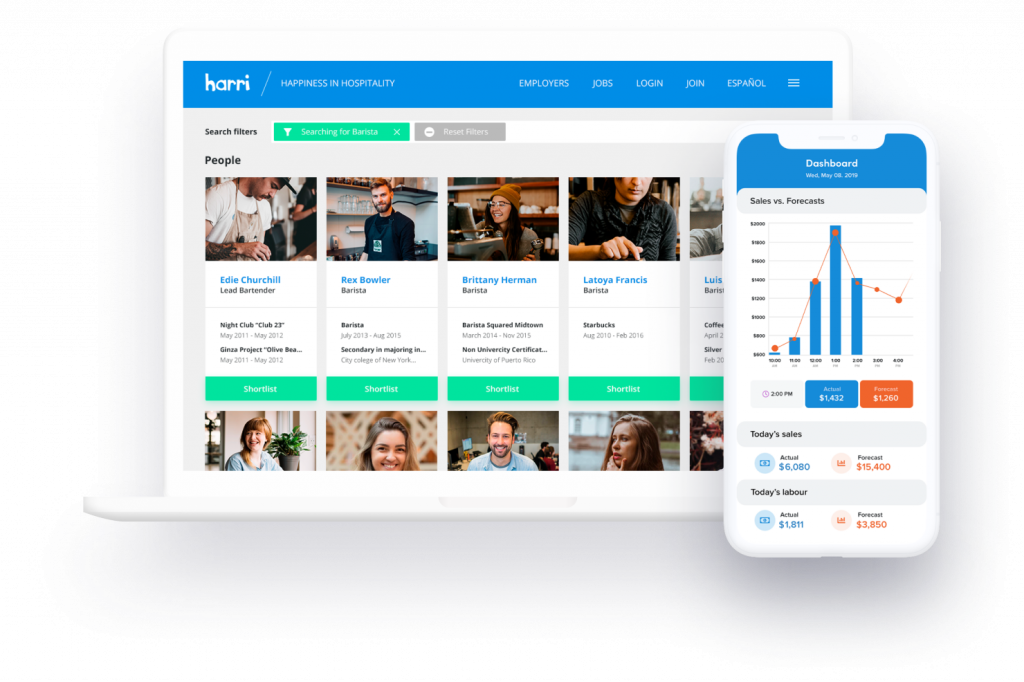Here’s What You Need to Know About Oregon’s Fair Workweek Rules

- By, December 18, 2019
Fair Workweek regulations are coming into force across the nation. These ‘predictive scheduling’ laws aim to promote flexibility for shift workers and protect against unfair scheduling practices.
The rules are complex and fines for violations are heavy.
Oregon was the first state to enact this legislation. According to the law, Oregon’s Bureau of Labor can issue fines from $500 to $1,000 for violations as well as civil penalties of $2,000 for any employer found to be coercing employees into asking to be added to the stand-by list for on-call shifts.
The authorities showed they weren’t afraid to wield their power when they fined Portland restaurant, Park Kitchen, $580,000 for practising tip-pooling against 41 former employees.
The law applies to hospitality and food service providers in Oregon with 500 or more employees and means employees must be given monthly schedules at least seven days in advance (rising to 14 days in July 2020) and records must be immaculate to avoid costly fines.
The fact these regulations vary significantly state-by-state makes it all the more difficult for restaurant groups who operate across multiple cities.
Many operators have put dedicated finance teams in place to identify violations and deal with penalties to ensure compliance. But this approach deals with the symptoms of the problem rather than the cause.
What is needed is a holistic solution that tackles the root cause while also mitigating risks throughout the business, enabling all departments to consistently and proactively work together.
Giving managers the power to use predictive scheduling effectively, minimizes violations and pushes any violation data straight to payroll to be dealt with in accordance with the law.
The result is greater efficiency and less stress for managers, more flexibility and protection for employees, and better results for the business – not only in terms of happy workers but in costs saved and embarrassment avoided.
Let’s take a look at the rules and penalties for Oregon and then how Harri’s system deals with the many challenges they pose to fast food operators in the city.
Regulations and Penalties for Oregon
Good Faith Estimate
Employees must be given, at the time of hire, an estimate of the median hours they are expected to work for the month. It must explain the details of the voluntary standby list.
Voluntary Standby List
Employers may maintain voluntary standby lists of employees willing to work additional hours due to unanticipated customer needs or unexpected absences. The employees must request or agree in writing to be on list and must be given all the relevant information. Employees on the list are not entitled to be compensated for work schedule changes.
The inclusion of voluntary standby lists offers employers more flexibility, preventing having to overstaff just in case demand is greater than expected.
Right to Rest
Unless the employee gives explicit consent, employers cannot schedule them to work two shifts over two days when the first shift ends the day (ie. it is a closing shift) and when there are less than 10 hours between shifts (known as a “clopening” – closing and opening – shift).
If an employee works during these rest periods, the employer must compensate them for each hour, or portion of an hour, worked at 1.5x the employee’s regular rate of pay.
Advanced Notice on Scheduling
Employees must be given the schedule at least seven days in advance of the first work day of that schedule (increasing to 14 days in July 2020).
Work schedules are required to be posted in a conspicuous and accessible location.
Changes to Work Schedules
If the employer requests changes to the written work schedule, the employer must provide timely notice of the change. Employees may decline any work shifts not included in the covered employer’s written work schedule.
If the employer changes a written schedule without advance notice of at least seven days (14 days from July 1, 2020) prior to the beginning of the workweek in which the change occurs, the employer is required to pay the employee an additional hour of pay in addition to regular wages earned under the following conditions:
If the employer:
adds more than 30 minutes to the work shift.
changes the date or starting and stopping time with no loss of hours.
schedules the employee for an additional work shift or on-call shift.
Employees may request in writing to work additional shifts or on-call work shifts any time after the advance notice of written work schedule.
Right to Input into Work Schedule
Employees may suggest changes to the work schedule and may request not to be scheduled for work shifts during certain times or at certain locations. Employers may not retaliate against employees for making such requests, however they are not necessarily required to accept them either.
Harri’s Intelligent Scheduling
Harri’s intelligent scheduling system automatically keeps operators up-to-date with regulations, even across multiple jurisdictions. It helps you not only to actively comply with regulations, but also to use predictive scheduling to improve your business.
Here’s a rundown of the main features.
Good Faith Scheduling Support
The system includes the following features to make employees aware of the Good Faith Schedule during onboarding:
The automatically generated Good Faith Estimate document provides new hires with a clear schedule in accordance with the local laws.
This is seamlessly integrated into the onboarding process for review and e-signature by the new hire.
Direct Shift Swaps
Harri’s Hot Fill system allows employees to exchange shifts directly without employer involvement. The peer-to-peer shift exchange does not violate the above rules on shift swaps based on pay rate and overtime thereby avoiding late-change penalties.
Hot Fill – “Uber for your employees”
Here’s how it works:
An employee is unable to attend work and they release the shift.
Other employees have indicated they wish to work on that day if a shift becomes available (note, they are not “on-call”).
The system alerts these employees via SMS and push notification.
The first employee to accept gets the shift.
The manager on duty is notified of the employee’s ETA and distance from work.
This system offers more flexibility for employees and makes it far easier for managers to oversee a shift swap, all while avoiding costly late-change penalties.
Calculation of Right to Rest Compensation Payment
The Right to Rest regulation ensures employees adequate rest between shifts. Harri helps managers to comply by alerting them if this rule is violated when the schedule is created, or any time after it is created, so they can proactively make changes to the schedule.
Manager Alert for Penalties Related to Schedule Changes
Managers have the ability to define compensation rules for changes after the advance notice period. Shift change premium pay is indicated on the schedule itself and included in the total wage cost calculations.
This means managers are fully aware of the cost impact of schedule changes before they put them in place so they are able to plan and make strategic decisions accordingly. It also makes it easy for the finance department to calculate the costs and pay the right amount to the employee.
Predictive Scheduling Premium Reporting
This feature provides managers with reports indicating, in detail, all the premium payments resulting from schedule changes. These can then be passed seamlessly to the finance department where they can be processed.
They can also be analyzed and scrutinized by management so that key decisions can be made on the company-wide scheduling policy to avoid future fines.
Make Sure Your Business is Protected
The best way to ensure compliance, at scale and across states and cities, is to use a holistic system designed for the purpose.
Harri’s smart scheduling tools simplify every stage of the process, dealing with the cause of the problem in order to minimize violations and streamline communication between departments, managers, and employees.
To see how you can use the system to protect your business and lead a happy, better-rested team, get started with Harri’s smart scheduling tools.


